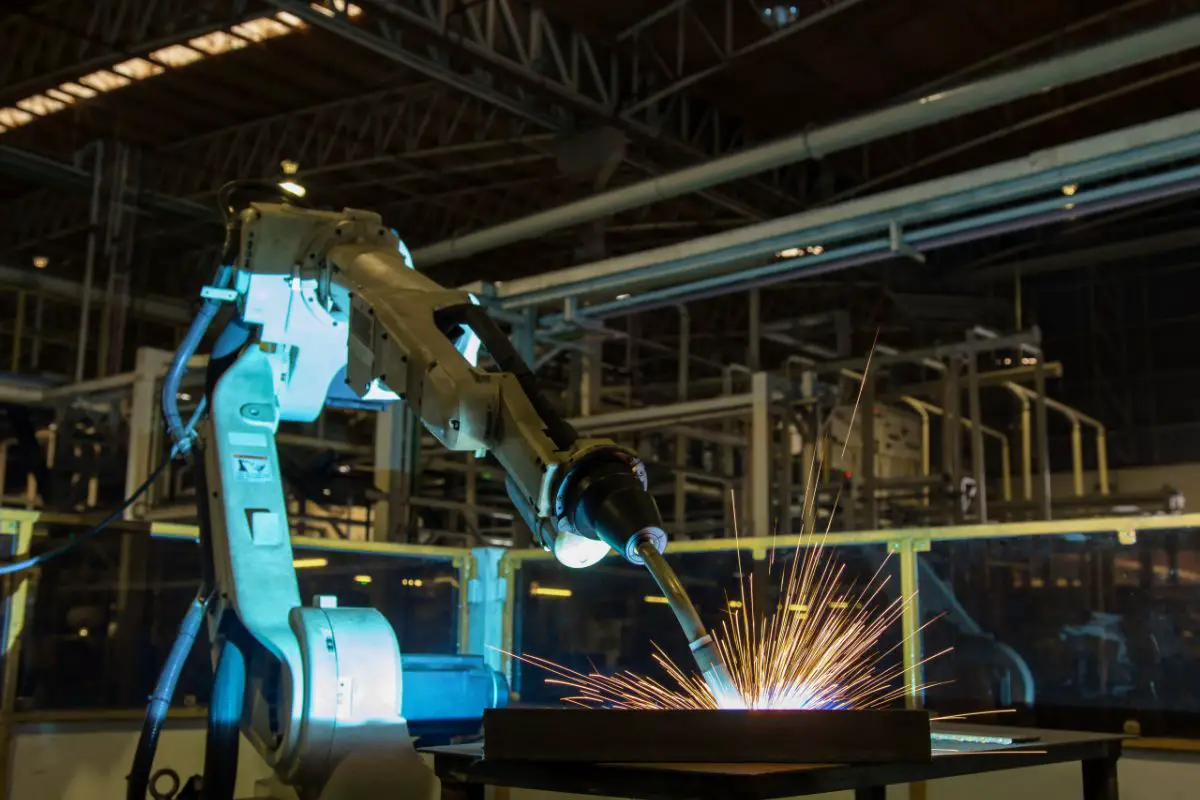The world of modern technology has advanced in leaps and bounds in recent years, enabling people and businesses to achieve things that they couldn’t before. This includes the implementation of AI.

Artificial intelligence (AI) is experiencing rapid expansion with the help of machine learning and other breakthrough technologies. Last year, Market Watch estimated the market size to be growing at a yearly rate of 55%, confirming that AI has not only emerged, but is also thriving.
A variety of things have caused artificial intelligence to rise in the business world. Companies from all industries are beginning to understand what AI could do for their operations by enriching decision-making and streamlining complicated, lengthy duties.
This powerful technology can aid organizations to improve their time, proficiency and total productivity.
Hence, it is not extraordinary that numerous companies are up-to-date with this progressive technology in multiple sectors such as healthcare, finance, marketing and many more areas.
Even so, there are still several myths which constrain businesses from fully utilizing AI at their workplace. Here are some of them.
Myth 1: AI Taking Jobs
Anxiety about the potential of AI taking over the job market and leaving people behind is a well-known fear.
Former Presidential candidate Andrew Yang (“Yang for America” organization) was concerned about transitioning to automated technologies, claiming that by 2050 it might erase millions of jobs. He penned a New York Times article basically titled “Yes, Robots are Stealing Your Jobs”.
While it is true that AI can be used to replace some complex and/or labor-intensive tasks and improve accuracy and productivity of work, this doesn’t undermine human workers or their worth.
Many organizations adopt AI not to replace staff, but to support them, enabling them to concentrate on primary areas such as client service and creating strategy plans.
Myth 2: Businesses Are Fine Without AI
Another myth currently circulating around industries today is that companies don’t need AI. This misconception comes from a misunderstanding of what AI actually is, and a lack of understanding about how much it can do for businesses.
In truth, more and more AI technology is being integrated into everyday operations, particularly in the business industry, as it can yield higher productivity levels, increase growth and foster success.
Companies are leveraging this technology to give them an edge in the field, giving them an advantage to work smarter and faster than their competitors. According to recent reports, a large majority of businesses have invested in AI tools within their operations.
A survey from PwC revealed that 72% of decision makers felt AI gives them an advantage over their rivals.
Although AI is still a relatively new concept for the marketing industry and many CMOs and other executives may not believe it to be capable of providing real value for brands yet, this couldn’t be further from reality.
Even though we’re only in the beginning stages of AI marketing and its potential, it still can help us make better decisions today.
AI is much more than what it was during the IBM Watson-era—more than just a technology used to rapidly answer questions on TV quiz shows or recognize pictures from consumer cameras.
Myth 3: Integration Issues
Many businesses shy away from using AI technology in their operations, citing complexity and difficulty in integration as the primary reasons. Given how complex AI technology can be, this is understandable — but it might not need to be the case.
As many AI tools are designed to help ease business burden or streamline operations, integrating them into one’s infrastructure would not turn out to be too difficult.
Many of the AI companies and tools out there have been designed with user experience in mind, meaning integration for a business is often effortless with use of Application Programming Interfaces (APIs) and customer assistance from the company.
There are plenty of organizations that make it easy for businesses to integrate advanced AI programs into their current structure.
Optalitix, Phrase, Relative Insights are just some companies who specialize in building advanced AI models and implementation so that businesses can use them without needing to create any major changes in the setup they already have.
Such companies also provide customer service departments where professional advice on any issue concerned with integration can easily be accessed if necessary.
Myth 4: It Will Replace Human Labor

Another common misconception about AI is that it eliminates the need for human labor. This is far from the truth!
While machines are great at automating mundane tasks like reading or executing an action, if certain criteria have been met, they cannot replace creative expertise or emotional labor. After all, marketing jobs require a little extra spark that only humans can bring to the table.
But with AI in the hands of talented marketers, they’ll be able to unlock their full potential and continue to do what they do best without wasting time on tedious and repetitive tasks that tech can easily handle instead.
According to research from Emarsys & Forrester there is a disconnect between how decision makers perceive their team’s skill set and what they feel about their own ability to leverage AI marketing technology—with between 60-70% of those that make decisions saying their staff don’t have the relevant technical skills required yet.
Myth 5: AI Projects Need ‘PhD Types’
When it comes to Artificial Intelligence and Machine Learning initiatives, many are under the impression that they must round up an army of data science PhDs and advanced mathematics experts. That’s simply not the case.
While you may need a small selection of these kinds of highly advanced people, most AI projects require business analysts, project managers, data analysts and even sometimes legal input.
In fact, some of the most critical work in any AI implementation is preparing and cleaning data, as well as labeling it for machine learning—all things that don’t necessarily require high math or coding skill levels.
This part of an AI implementation can actually take more time than tweaking algorithms or crafting models.
Regardless of what kind of talent your team has at their disposal, they can still make marked improvements with Artificial Intelligence if they have valuable business insights and awareness.
Myth 6: AI Does All The Work For You
When launching an AI project, most people focus on collecting and labeling data, building the AI models and getting the most out of training. What is often overlooked or misunderstood is that in reality, this is only the beginning.
A common mistake people make when it comes to AI projects is thinking that, once they have been established and become operational, you can sit back and let the system do all its “stunning” work by itself.
This isn’t correct—if you want to get the most out of your AI system, it will require continual monitoring and optimization. Your AI system needs to be presented with new data to upgrade its outputs as well.
This suggests that compared to normal business applications, your AI system has an entirely distinct life cycle which must be taken into account in setting out plans, adding staff members, and planning a budget for the future.
Going live with your AI project is simply the first stage of a potential ongoing process for many organizations.
A New Mindset
The proliferation of artificial intelligence (AI) and machine learning across our daily lives is hard to ignore.
We see it everywhere, a great many of the media portals, social networking websites, and sites we visit every day contain AI-crafted features—frequently these fill in for digital activities.
Artificial intelligence has an influence much wider than simply electronic mediums—it is incredibly entrenched in promotional efforts as well.
Marketers at these companies are focused almost entirely on creating better content and better user experiences, without having to worry about the technical side of things. It’s no longer necessary for marketers to have a technical background for AI to work.
With an advanced AI-enabled marketing platform, the machine is able to do the hard graft and frees them up to refocus their attention on other crucial tasks that will drive business forward.
By driving more qualified leads, salespeople will be more productive in their efforts and customers will receive a more personalized experience that better meets their needs.
In Summary
AI is a useful tool in businesses, but misconceptions can lead to a lack of understanding and appreciation for its potential. AI can be used to automate mundane tasks, improve customer experience, and drive better business decisions.
However, it is important to remember that AI does not do all the work for you and requires ongoing monitoring and optimization in order to get the most out of it.
Additionally, marketers no longer require a technical background in order to use AI effectively as AI-enabled marketing platforms can do the time-consuming work for them. By understanding these misconceptions, businesses can better leverage AI to their advantage.









The point of view of your article has taught me a lot, thank you.